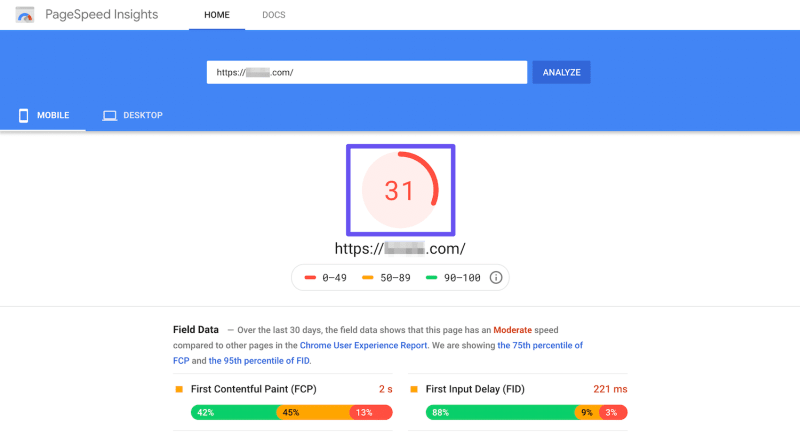I have been seen many articles on the internet about web performance and they have titles like “Top 5 secrets to boost your PHP performance” and “15 tips to improve the performance of your site” and yeah, they are really helpful, but we need to stop looking for hacks and quick tips and start to look deeper for what is performance.
Why are you looking for performance?
Your boss came with some explicit orders from the client to test the web performance of a project that you just finished recently.
They are like “OMG, the SEO tool requires a good site performance. What we do??” And there is where you enter. You need to test your own site performance and is faced with something like that:
This really hurts, don’t?
You have a long way to go now. And to think that you would never touch this site again…
What is performance?
If you are a runner, you always do your best to improve yourself. You don’t just buy a new pair of shoes and think that you’re the fastest runner on the planet.
How the development cycle of your applications is? Do you pay attention to what decisions you take off while programming or go back to any part of your code that doesn’t really like the implementation?
Do you like refactoring your code and always are searching for ways to increase the quality or you just make some configurations in your webserver to cache faster and that’s enough?
Performance is a culture.
When you code something that works but don’t stop to overthink how that can affect your application in production scenarios, this can blow off all those articles about performance.
These articles can’t help you with structural issues. This is something much deeper. For that, you need to understand that programming language you are coding and the best solution gave by her based on your knowledge about data structured and requirements of the project.
Performance can be hard. There so many skills involved, like browser and network performance, web server, and… I’m getting sleepy.
Doing this, you can apply performance culture in every project and learn a lot with this. I know, sometimes can be really boring, but when you understand why you are doing this, became so much acceptable (I say this because still boring, but now you know that you are saving the user’s life and 3G, for sure).
I can say for myself, performance can be a topic really interesting.
🎯 CHALLENGES
- Choose one project and start to analyze it. There is something that can be done in a different way?
- Take metrics from different methods in a programming language that do similar things (a for loop, while and forEach), compare them and find the best one for your implementation
- Code the way you know first and then spend some time refactoring your code








Top comments (0)